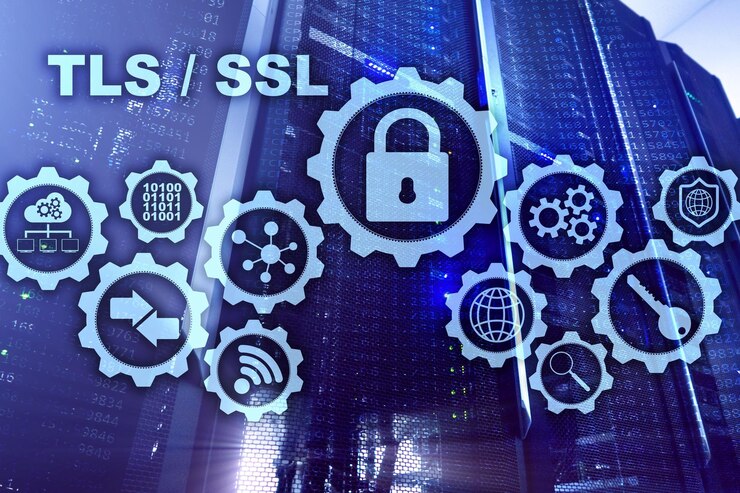In the realm of web development, “/portal.php” is a common term that developers, administrators, and security professionals may encounter. It typically refers to a PHP file used in the backend of a website to manage or provide access to a web portal. These portals are often used by businesses, educational institutions, and various online services to offer a gateway for users to access information, resources, and personalized content. This article delves into the purpose and functionality of “/portal.php,” its common uses, and the security considerations that come with its implementation.
What is /portal.php?
“/portal.php” is a PHP script that acts as a controller or entry point for a web portal. A web portal is essentially a specially designed website that brings information from diverse sources, such as emails, forums, and databases, into a single user interface. This script is responsible for processing requests from users, retrieving data, and rendering the appropriate views based on user permissions and roles.
In a typical web application, “/portal.php” might be used to handle various tasks, including:
- User Authentication: Managing login and logout processes, ensuring that only authorized users can access specific parts of the portal.
- Content Management: Displaying different types of content, such as news, updates, or personalized information, based on the user’s profile.
- Data Retrieval: Querying databases to retrieve information that the portal needs to display, such as user data, records, or reports.
- Navigation and Access Control: Handling user navigation within the portal, directing them to different sections like dashboards, profiles, or resources based on their access level.
Common Uses of /portal.php
The “/portal.php” script is a versatile component found in many types of web portals. Some common use cases include:
- Corporate Intranets
- Companies often use web portals to provide employees with access to internal resources, such as HR tools, company announcements, and shared documents. The “/portal.php” file might be responsible for managing access to these resources and ensuring that employees can easily navigate through the portal.
- Educational Platforms
- Schools and universities use portals to provide students and staff with access to course materials, grades, schedules, and communication tools. In this context, “/portal.php” would manage authentication and provide personalized content depending on whether the user is a student, teacher, or administrator.
- Customer Service Portals
- Businesses often offer customer portals where clients can manage their accounts, track orders, or access support resources. The “/portal.php” script would be essential in ensuring that users are directed to the appropriate sections of the portal based on their needs and account status.
- Community Forums
- Online communities use portals to aggregate forum posts, messages, and user-generated content. “/portal.php” could handle the display of relevant threads, private messages, and user activities, making the forum more accessible and organized.
Security Considerations for /portal.php
While “/portal.php” is a crucial part of many web applications, it also presents several security challenges that developers and administrators must address to protect the portal and its users from potential threats.
- Authentication Vulnerabilities
- Since “/portal.php” often handles user authentication, it is a prime target for attacks such as brute force login attempts or session hijacking. Ensuring strong password policies, implementing multi-factor authentication (MFA), and using secure session management practices are critical to mitigating these risks.
- SQL Injection
- If the “/portal.php” script interacts with a database, it may be vulnerable to SQL injection attacks, where an attacker manipulates database queries to gain unauthorized access to data. To prevent this, developers should use prepared statements and parameterized queries to ensure that inputs are properly sanitized.
- Cross-Site Scripting (XSS)
- Portals that allow users to input data, such as in forums or profile settings, may be susceptible to XSS attacks. This occurs when an attacker injects malicious scripts into web pages viewed by other users. Properly escaping and validating all user inputs is necessary to prevent these attacks.
- Access Control
- Proper access control mechanisms must be in place to ensure that users can only access the sections of the portal they are authorized to view. This involves checking user roles and permissions within “/portal.php” and ensuring that sensitive data or administrative functions are not exposed to unauthorized users.
- Secure Data Transmission
- Given that “/portal.php” often handles sensitive information, it’s essential to ensure that all data transmissions between the user and the server are encrypted using HTTPS. This helps prevent eavesdropping and man-in-the-middle attacks.
Best Practices for Managing /portal.php
To secure and optimize the use of “/portal.php” in your web application, consider the following best practices:
- Regular Security Audits: Regularly audit the code and configurations of “/portal.php” to identify and patch any security vulnerabilities.
- Code Reviews: Implement code reviews to ensure that the PHP script follows best practices for security and performance.
- User Education: Educate users about the importance of strong passwords and safe online practices to reduce the risk of credential-based attacks.
- Logging and Monitoring: Enable logging and monitoring on “/portal.php” to detect and respond to any suspicious activity, such as repeated failed login attempts or unusual data access patterns.
Conclusion
The “/portal.php” script plays a pivotal role in managing web portals, making it a critical component of many online platforms. While it provides essential functionality for user authentication, content management, and data retrieval, it also comes with significant security responsibilities. By following best practices and staying vigilant about potential threats, developers and administrators can ensure that their portals remain secure and efficient, providing users with a safe and reliable experience.









